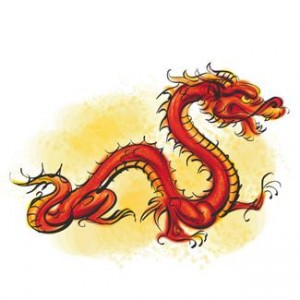The Challenges of Chinese Translation
According to a report by China Daily on April 17th, Guo Xiaoyong, the vice-president of China Inter national Publishing Group (CIPG), indicated that translation of Chinese texts remains one of the greatest obstacles to exporting Chinese books, in an interview at the London Book Fair. Given the ascent of the Chinese economy, there has been a growing global interest in Chinese culture, literature, and society. The problem, according to Xiaoyong, is that there are few good translators for the Chinese language and a large pool of influential Chinese texts that have yet to be translated.
national Publishing Group (CIPG), indicated that translation of Chinese texts remains one of the greatest obstacles to exporting Chinese books, in an interview at the London Book Fair. Given the ascent of the Chinese economy, there has been a growing global interest in Chinese culture, literature, and society. The problem, according to Xiaoyong, is that there are few good translators for the Chinese language and a large pool of influential Chinese texts that have yet to be translated.
In analyzing this situation, one must examine the current issues facing the Chinese language today, and why it is difficult to find well-practiced and highly-rated translators that can work directly from the Chinese language to English, for example. The Chinese language is one of the most difficult to translate, for a variety of reasons. First, Chinese includes seven official dialects and several local sub-dialects or variations, which can present a problem to Chinese translators who may not be familiar with the Chinese written from a particular era and locality. Another complication of the Chinese language is the use of characters, rather than letters from a standard alphabet. Characters do not represent sounds, like in a standard alphabet system, but rather ideas, which transmit meaning differently. Furthermore, there are two different writing systems that exist for Chinese: Simplified Chinese or Traditional Chinese characters; Simplified Chinese was employed in the 1950s in order to increase literacy among society by “simplifying” a traditional character system that wielded thousands of characters. Finally, the syntax of written Chinese differs significantly from Western languages (especially English), and so issues such as verb tenses can be hard to translate effectively from Chinese into the foreign language.
Despite these challenges of translating Chinese to a foreign language, there are reliable resources available to handle specific text translations, with certifications and specified knowledge. In order to guarantee the best quality of a Chinese translation, you should always plan sufficient time that allows you to work closely with the translation team and accommodate for the translator to properly examine the text and research any concepts if necessary. If you are interested in obtaining a quote for a Chinese text or for a Chinese translation of an English text, feel free to consult us for a free translation quote.
